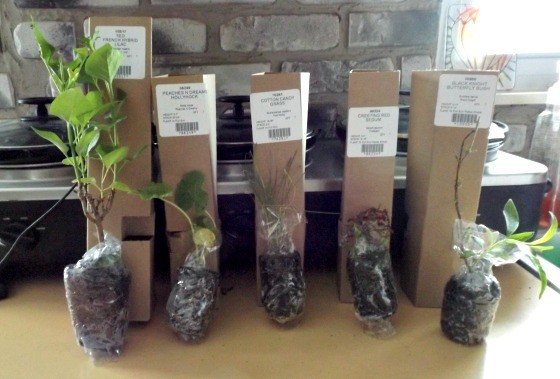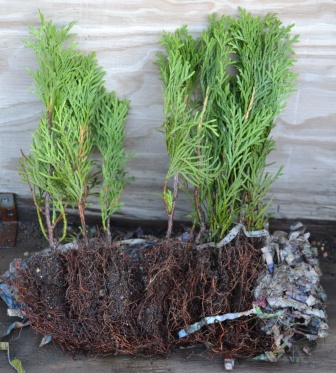Every day hundreds of wholesale plant sales and other transactions take place in our Backyard Growers Business Center.
If you are new to the business, you can learn a lot from the experienced members of the group.
Shipment of plants by mail requires detailed packaging and preparation of the plant, you want to ensure that the receiver gets the best product possible from you!
I recently received some Chinese Dogwood trees that I purchased from one of our wholesale suppliers in the Backyard Growers Business Center and even in the single digit temperatures, the plants arrived in very good condition.
When it comes to shipping plants there are four things that are really important. Get these four things right and your plants will arrive safe, sound and happy.
1. Moist roots.
2. Dry tops.
3. Good packing. Don’t allow the plants enough room to slide around in the box.
4. Speed. Use the fastest method possible. However, you don’t have to pay those high overnight charges. 3 to 4 days is usually acceptable.

My plant order from an online retailer.
I am new to growing, so I paid attention to how the trees were packaged. They arrived in a USPS box appropriate for their length. I opened the box and pulled out my neatly wrapped package.
The bundle of trees were wrapped in plastic and sealed shut tightly with packaging tape (I needed scissors to remove the tape).
The roots were wrapped in several layers of moistened newspaper (the sealed plastic wrap helped keep the moisture in the package).

Emerald Green Arborvitae Rooted Cuttings.
When I unwrapped the newspaper, the roots were mostly free of soil and in very good condition, and the trees were labeled and identified by their proper name. (Chinese Dogwood Cornus Kousa)
Also in the box was a neatly printed invoice along with a copy of the seller’s nursery license.
I was not ready to plant them right away so I re-wrapped the little trees and put them in the coldest area of my basement to maintain their dormancy.
One of our members created this video showing how they process an order from start to finish, enjoy!
Is a seller’s nursery license necessary? Mandatory?
Yes it is. It’s all about making sure that everybody is selling disease free plants. It protects us all.